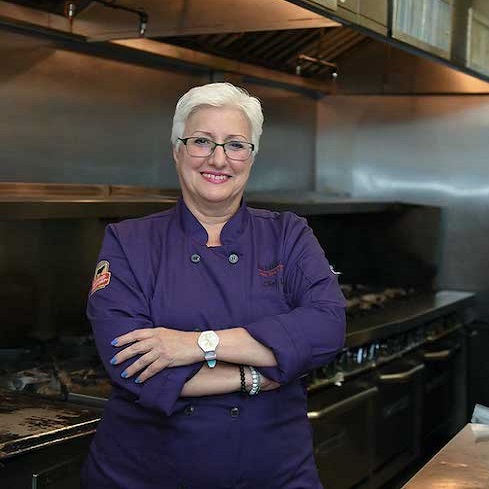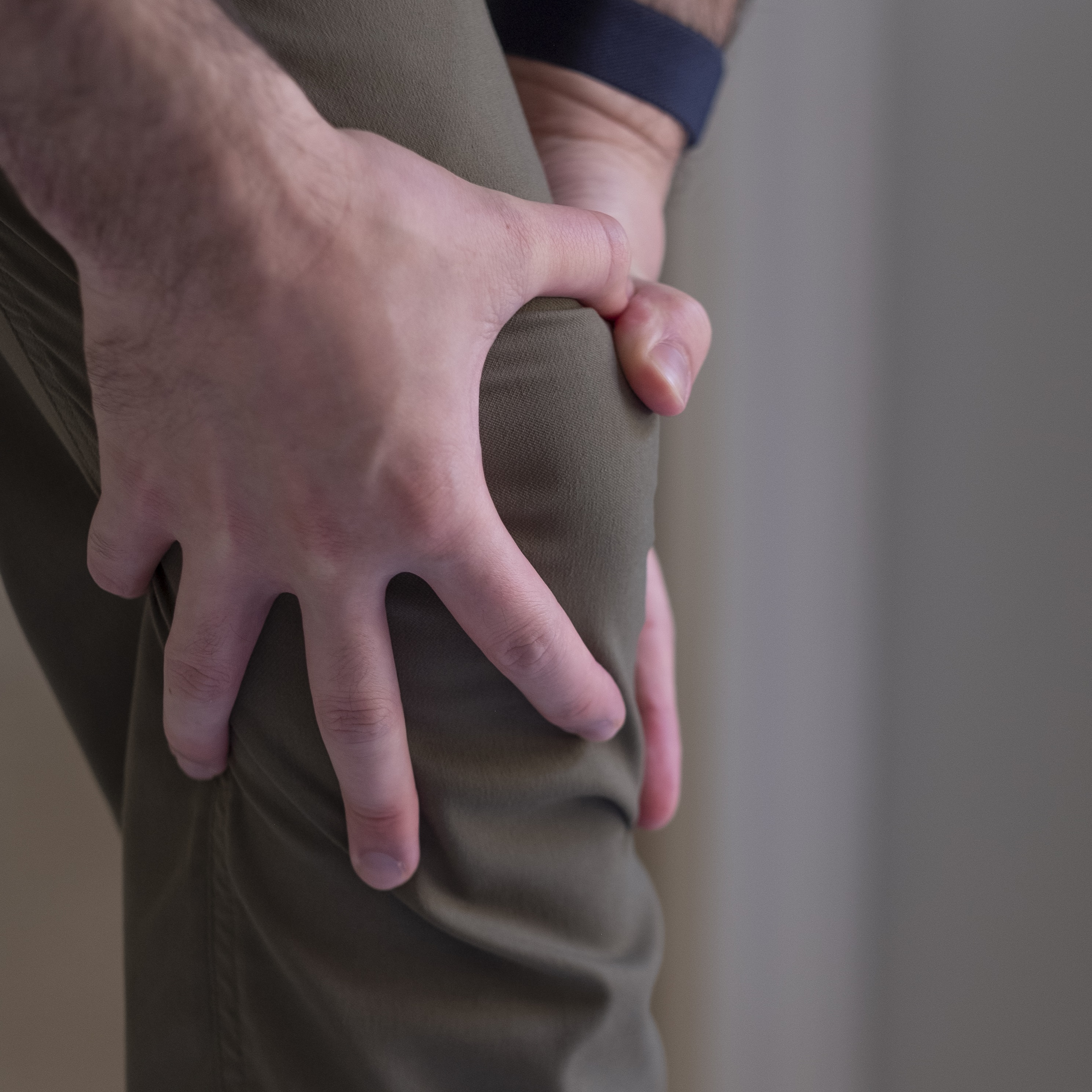She's Still Standing - Thanks to Robotic Knee Surgery

October 16, 2019
Over a nearly 40-year career in the restaurant business, Chef Lydia Liebchen thrived on the heat of the kitchen.
It was the pain she couldn’t stand—knee pain, to be exact. Year after year, decade after decade, long days on her feet had taken a toll on her body. Osteoarthritis, also known as “wear-and-tear” arthritis, gradually wore down the cartilage in her knees to virtually nothing.
“Constant, unrelenting, ever-worsening pain changes who you are on a lot of levels because all you can think about is the pain,” says Lydia, 60, of Bergenfield, New Jersey. “It colors every minute of every day.”
Yet she pushed through the agony.
“There are no days off,” Lydia says. “It’s the restaurant business. You suck it up. Everybody’s hurting.”
But eventually, the pain became unbearable. After conservative treatments were no longer helpful, Lydia opted for surgery. In 2012, orthopedic surgeon Harlan Levine, M.D., performed a successful total right knee replacement at Hackensack University Medical Center.
In early 2018, the intolerable pain returned, this time in her left knee, and Lydia again turned to Dr. Levine.
“He’s compassionate, sensitive and intuitive. He knows how you’re feeling. I recommend him to everybody,” she says.
Not long before Lydia was scheduled to undergo her second total knee replacement, she received a call from Dr. Levine, asking if she would like to take part in a revolutionary new treatment.
Recreating Better Knees
An international team of engineers and surgeons, including Dr. Levine and fellow orthopedic surgeon Gregg Klein, M.D., developed the Robotic Surgical Assistant (ROSA) Knee System for a medical device manufacturer. On April 29, 2019, Hackensack became the first hospital in New Jersey and the third site in the United States to use the ROSA system for total knee replacement surgery. Lydia was the first patient.
Total knee replacement, wherein a surgeon uses metal and plastic implants to resurface the bones that make up the knee joint, is one of the most successful surgical procedures in medicine. The ROSA system improves the conventional method and offers a more personalized knee replacement, Dr. Klein says.
“Not all knee replacements are perfect. Sometimes we don’t know why one is perfect and one is not,” he says. “This technology gives us more information and the opportunity to potentially recreate better knees in all patients.”
The ROSA system gives surgeons the ability to more accurately and effectively plan a patient’s total knee replacement, then execute that plan with remarkable precision.
The process begins with standard 2D X-rays, which are widely available and pose less of a radiation risk than CT scans. The ROSA software then turns the X-rays into a 3D model of the knee, which the surgeon uses to formulate a plan customized to the patient’s unique anatomy.
During surgery, the ROSA system provides real-time data to help the surgeon further assess the bones and soft tissues of the knee, as well as how the knee moves. This data also allows the surgeon to determine the optimal size and placement of the implants.
“By having the imaging technology coordinated with the computer and the robot, we can put the knee replacement components in very precise positions—down to a half millimeter, which is something that traditional technology hasn’t been able to allow us to do,” Dr. Klein says.
The result: a more balanced, stable and natural-feeling knee, with the potential to shorten recovery time and lessen the chance of additional surgery.
Dr. Levine says patients who hear “robot” and picture an autonomous machine operating on them need not worry. The robot helps guide the surgical instruments, but the surgeon is very much in control.
“When we designed this system, we wanted to make sure that it was centered around the surgeon,” Dr. Levine says. “The robot is not doing anything independently. The surgeons still do the cutting. The surgeons still do the double-checking.”
A Promising Future
A few weeks into rehabilitation, Lydia feels she’s further along in her recovery than at the same point after her first knee replacement. Every day, she inches closer to getting back in the kitchen.
“I’m getting everything back little by little,” she says. “Soon I’ll be at that level where I can enjoy everything that I love again.”
Aside from her own health, Lydia is satisfied knowing that she has helped pave the way for other patients. She was pulling for the surgery to be successful not only for her own sake, but for the sake of Dr. Levine and all the patients who will benefit from the technology.
“Dr. Levine makes you feel like you’re part of a team,” she says.
Lydia’s attitude is one reason Dr. Levine selected her for the groundbreaking surgery.
“To see outside of herself, and how she as a patient helps play a role in the betterment of health care, is a tribute to who she is and her quality of character,” Dr. Levine says.
As for the ROSA system, this is just the beginning. Dr. Klein hopes to see the technology expanded to the entire Hackensack Meridian Health network over time. And Dr. Levine expects the technology to evolve to assist with other types of surgeries in the future.
“To actually see it in action and to use it to great advantage for our patients has been very exciting,” Dr. Levine says.
Next Steps & Resources
- Learn how the orthopedics teams at Hackensack Meridian Health are committed to helping patients maintain pain-free movement and joint health.
- In September, Hackensack University Medical Center officially broke ground on its state-of-the-art 530,000-square-foot patient pavilion, which includes a 50-bed Orthopedic Institute. Learn more.
The material provided through HealthU is intended to be used as general information only and should not replace the advice of your physician. Always consult your physician for individual care.



